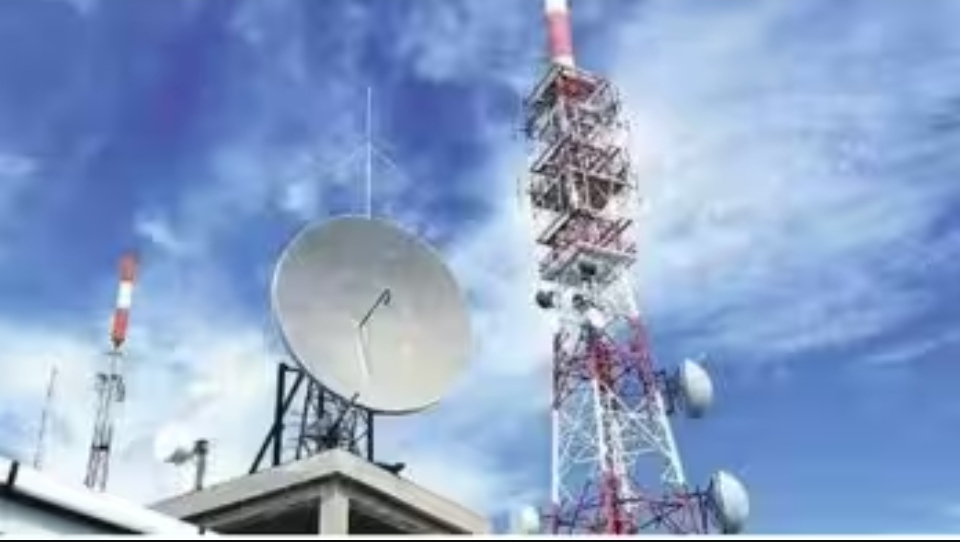Jio and Bharti face competition from Starlink and Amazon
Although the Telecommunications Bill, 2023 has paved the way for administrative allocation of satellite spectrum, Reliance Jio, which is fighting the airwaves auction, will not be at a disadvantage. It’s just that the company will now have to compete strongly with tech giants like Starlink, Amazon, etc. Allocating spectrum through auctions is likely to have only limited competition for telcos, as big tech companies are unlikely to participate.
Unlike telecommunications, due to the different nature of services, each service provider must have its own spectrum, satellite spectrum is a shared resource and no player has super ownership based on strategy Bidding.
TV Ramachandran, president, India Broadband Forum said, “With the bill paving the way for administrative spectrum allocation, there will now be natural competition in the sector, which will ensure access to services”. According to Ramachandran, auctions are essentially impossible in the satellite space and if spectrum bands are auctioned, it will prevent new players from entering the segment.
Satellite services are also different from telecommunications in that satellite services focus on high-speed Internet services, mostly in low-lying areas where it is difficult to provide telecommunications services. In a way, this also reduces the size of the industry’s target market. Sources said this is also a factor considered in the administrative allocation of satellite spectrum in the country.
Jio’s argument for auction during Trai’s consultation was based on the principle of one service, one rule. Citing legal opinions, Jio also said since the spectrum would be used by companies for their personal benefit, any method other than auction would violate Article 14 of the constitution.
However, it is understood that the administrative allocation of spectrum to satellite companies will involve point-to-point communications between the satellite and the ground station gateway and while satellite operators tend to provide provide access services, like telecommunications companies, they will have to participate. at the auction.
“For any company to provide meaningful satellite communications services, it is necessary to first have a comprehensive satellite constellation, as this is needed to provide seamless connectivity for consumers, businesses, and other use cases.” from Hughes Communications India.
According to Chatterjee, OneWeb is expected to become a leader in the satellite communications market as the company not only has the necessary approvals but also has a large team to deliver the services. OneWeb, recently named Eutelsat OneWeb, consists of more than 630 satellites distributed across 12 synchronous orbital planes at an altitude of 1,200 km, in low Earth orbit (LEO). Recently, Sunil Bharti Mittal, Chairman, Bharti Enterprises, had said that OneWeb will be ready by the end of November.
In comparison, Jio also introduced India’s first gigabit satellite Internet service, JioSpaceFiber, in October, which can be used to provide high-speed Internet services in hard-to-reach areas. vicinity of the country. The company has connected four remote locations with
JioSpaceFiber: Gir in Gujarat, Korba in Chattisgarh, Nabarangpur in Odisha and Jorhat in Assam, using tested spectrum.
Jio has a joint venture with SES to provide high-performance satellite broadband services across India. The companies will provide Internet access via satellites in medium Earth orbit (MEO). Knowledgeable experts have said that Jio may lag behind in capturing market share in the satellite space, purely due to the lower number of MEO satellites. SES has currently only launched 6 MEO satellites. However, experts say, to provide universal coverage and avoid interference, satellite volume needs to be increased in space.
Since MEO satellites orbit 10,000 to 20,000 km above Earth, they provide greater ground coverage than LEO and have an average lifetime of 9 to 10 years, which is better than LEO. However, LEO satellites have lower latency. Companies like OneWeb, Starlink, etc. uses LEO satellites to provide services.
“Unpredictability will no longer exist in the market with administrative allocation. Now, the competition will be conducted on the basis of a concrete business plan, use cases and technological innovation,” said AK Bhatt, Director General of the Indian Space Association (ISpA).
According to a joint report by ISpA and Deloitte, the market potential for satellite broadband connectivity in rural areas is expected to reach $263 million in the next five years.
For more information visit at https://happenrecently.com/zepto/?amp=1







